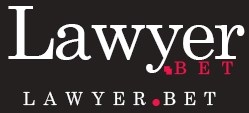Debunking Common Misconceptions About Estate Planning
There are several misconceptions surrounding estate planning that can lead individuals to overlook its importance. Let’s explore and debunk some of these myths to highlight the significance of having a well-thought-out estate plan.
1. Estate Planning is Not Just for the Wealthy
Contrary to popular belief, estate planning is not exclusive to the wealthy. It is a crucial process for individuals of all financial backgrounds. While those with significant assets may have more complex planning needs, everyone can benefit from having a plan in place. Estate planning goes beyond asset distribution; it involves outlining healthcare preferences, appointing guardians for minors, and ensuring the well-being of loved ones after one’s passing.
2. Estate Planning is Not Limited to Older Individuals
Another misconception is that estate planning is only necessary for older individuals. Unexpected events can occur at any age, underscoring the importance of having a plan in place. Estate planning allows individuals to dictate how their affairs should be managed in the event of incapacity or death, regardless of age.
3. A Will is Just One Piece of the Puzzle
While a will is a fundamental aspect of estate planning, it is not the sole document to consider. Other critical components include a durable power of attorney, a healthcare directive, and potentially a trust. These documents offer guidance for financial and healthcare decisions both during one’s lifetime and after their passing.
Diverse Elements of Estate Planning:
- Durable Power of Attorney: Designates someone to make financial and legal decisions if one becomes incapacitated.
- Healthcare Directive (Living Will): Specifies healthcare preferences and appoints a healthcare proxy for medical decisions.
- Trusts: Useful for managing assets, minimizing taxes, and catering to specific needs like caring for minors or individuals with special requirements.
- Beneficiary Designations: Directly designate beneficiaries for assets like life insurance policies and retirement accounts.
Consulting with an experienced estate planning attorney can help ensure a comprehensive and legally sound plan.
4. Estate Planning is a Continuous Process
Contrary to the belief that estate planning is a one-time event, it is an ongoing process. Life changes such as acquiring assets, marital status changes, having children, or shifts in financial circumstances necessitate regular reviews and updates to the estate plan to align with current wishes and situations.
Why Estate Planning Requires Ongoing Attention:
- Changing Life Circumstances: Events like marriage, divorce, or changes in financial status can impact the estate plan.
- Tax and Legal Changes: Updates to tax laws and regulations may necessitate adjustments to the plan for tax efficiency and compliance.
- Evolving Goals and Priorities: As goals evolve, the estate plan should reflect current objectives such as charitable giving or asset protection.
- Asset Portfolio Updates: Acquiring or selling assets requires updates to beneficiary designations and trust provisions for a seamless transition.
Regularly reviewing and updating the estate plan ensures that it remains relevant and effective in meeting one’s goals. Consulting with a knowledgeable estate planning attorney is recommended for ongoing maintenance and updates.
The post Learn 4 Myths About Estate Planning appeared first on locallawyerny.com.
Learn 4 Myths About Estate Planning
Estate planning is a crucial financial planning tool that ensures your assets are distributed according to your wishes after your passing. Despite its importance, there are several misconceptions surrounding estate planning that can lead to common mistakes. In this article, we will debunk four myths about estate planning to help you better understand the process and make informed decisions for your future.
Myth 1: Estate Planning is Only for the Wealthy
One of the biggest myths about estate planning is that it is only necessary for the wealthy. In reality, estate planning is important for individuals of all income levels. Regardless of the size of your estate, having a well-thought-out estate plan can help you protect your assets, minimize taxes, and ensure your loved ones are taken care of after you’re gone. By creating an estate plan, you can dictate how your assets are distributed, appoint guardians for minor children, and designate healthcare proxies to make medical decisions on your behalf.
Myth 2: Estate Planning is Only for Older Individuals
Another common misconception about estate planning is that it is only necessary for older individuals. The truth is, estate planning is important for adults of all ages. None of us know what the future holds, and having a comprehensive estate plan in place can provide peace of mind for you and your loved ones. Whether you are a young professional just starting your career or a retiree enjoying your golden years, it’s never too early to start planning for the future.
Myth 3: A Will is Sufficient for Estate Planning
Many people believe that having a will is sufficient for estate planning. While a will is a crucial component of an estate plan, it is not the only document you need. In addition to a will, you may also need a trust, advance healthcare directive, power of attorney, and other legal documents to ensure your wishes are carried out effectively. Working with an experienced estate planning attorney can help you create a comprehensive estate plan tailored to your specific needs and goals.
Myth 4: Estate Planning is a One-Time Event
Some individuals believe that estate planning is a one-time event that can be checked off their to-do list and forgotten about. In reality, estate planning is an ongoing process that should be reviewed and updated regularly to reflect changes in your life, such as marriage, divorce, birth of children, or significant financial decisions. By regularly revisiting your estate plan, you can ensure it remains up-to-date and accurately reflects your current wishes and circumstances.
Practical Tips for Effective Estate Planning
– Start the estate planning process early to ensure your wishes are accurately reflected.
– Consult with an experienced estate planning attorney to create a comprehensive plan tailored to your unique needs.
– Review and update your estate plan regularly to reflect any changes in your life circumstances.
– Communicate your estate plan with your loved ones to ensure they understand your wishes and can help facilitate a smooth transition after your passing.
Benefits of Effective Estate Planning
– Protect your assets and minimize taxes.
– Ensure your loved ones are taken care of after your passing.
– Avoid lengthy and costly probate proceedings.
– Provide peace of mind for you and your family members.
Overall, estate planning is a critical component of financial planning that should not be overlooked. By debunking these common myths and understanding the importance of estate planning, you can take steps to secure your financial future and protect your loved ones. Remember, it’s never too early to start planning for the future, so take charge of your estate planning today.










